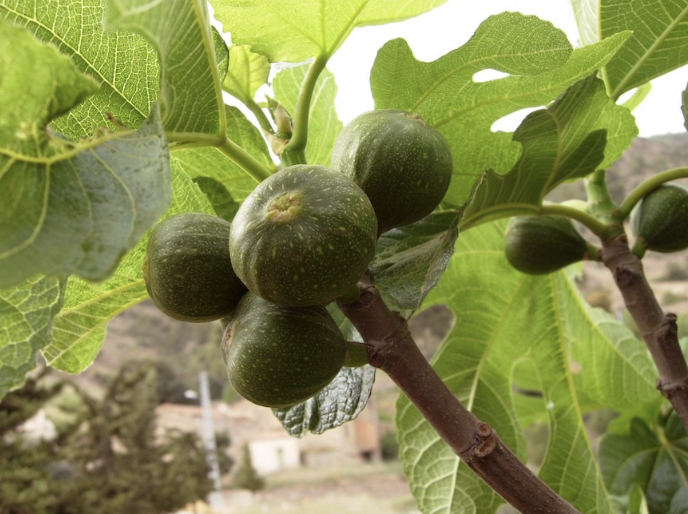Yeshua And The Fig Tree.
Have Faith in God – Feed on Faithfulness!

A precious insight lost in translation:
Because the New Covenant text was most likely translated from Aramaic to Greek, and then to English, we often lose the connection to the Old Testament.
Often, Yeshua is actually quoting an Old Testament scripture and we don’t know it.
Here is a good example:
“Have faith in God” comes from Mark 11:20. It should be translated “Feed on faithfulness,” a quote which comes from Psalm 37:3.
In this case, by going back to the original language, and making the connection to the book of Psalms, we not only have a commandment to ‘have faith’, but we will learn how to have faith.
Have a glance at the different translations in English for this verse in the Psalms:
“…dwell in the land and enjoy safe pasture.” (NIV); “…dwell in the land, and verily thou shalt be fed.” (KJV)
Here, again, is the correct translation;
“Trust in the Lord, and do good; dwell in the land, and feed on His faithfulness.”(NKJV)
“Feed on faithfulness”
Faith and faithfulness are the same words in Hebrew and Greek. Also, the verb “believe” comes from these words. This means we can’t have faith without being a faithful person.’Feed on faithfulness’ means to cultivate faithfulness in our lives.
“Have faith in God (feed on faithfulness) for verily I say unto you, that whosoever shall say unto this mountain, be thou removed, and be thou cast into the sea; and shall not doubt in his heart, but shall believe that those things which he saith shall come to pass; he shall have whatsoever he saith.” Mark 11:20
If we want faith that can move mountains, Psalm 37 teaches we must also be faithful.
This is what Yeshua is saying: Cultivate being faithful in all areas of your life and meditate on God’s faithfulness.
Why did Yeshua curse the fig tree? (The context of our quotation from Mark11:20) The fig tree is a symbol of Israel.
Israel, at the time of Yeshua, was unfaithful, and was about to go into a 2,000 year exile. Israel was not faithful (without faith and faithfulness) and was left withered like the fig tree that Yeshua cursed.
It was when Yeshua and His disciples were gazing on this dry, cursed tree that he gave us this lesson, “feed on faithfulness”
God’s faithfulness is also demonstrated in the nation Israel, even in Israel’s unfaithfulness.
After 2,000 years, in 1948, the fig tree, which had been cursed, was revived to life, with leaves and buds for fruit. God’s calling is irrevocable!
There is no better way to understand and to cultivate God’s faithfulness than to study His dealings and promises to the nation of Israel.
“Dwell in the land and feed on faithfulness” Psalm 37
You ‘dwell in the land’ by being faithful and having faith.
Look at this amazing connection: Yeshua curses the fig tree.
The next morning Peter notices it dried at the roots and reminds Yeshua.
Yeshua’s immediate response was “Feed on faithfulness”
The disciples would have known this reference to Psalm 37, having learned this Psalm off by heart and hearing it recited many, many times, so the other half of this verse; “Dwell in the Land feeding on faithfulness” (my translation) would have been an immediate connection and very meaningful to them. They would have known He was talking about the nation’s need to be faithful and that their right to dwell in the Land depended on that faithfulness.
God’s faithfulness is also demonstrated in the nation Israel, even in Israel’s unfaithfulness. After 2,000 years, in 1948, the fig tree that was cursed was revived to life.
“When his branch is yet tender, and putteth forth leaves, ye know that summer is nigh”
(Matthew 24:32)
God’s calling is irrevocable. Israel is destined to be head of the nations. The rejection of the Messiah only postponed this calling, it did not cancel it.
There is no better way to understand and to cultivate God’s faithfulness than to study His dealings and promises to the nation of Israel.
What are some practical outworkings of faithfulness?
Here are only some I can think of, as an example:
Obviously, faithfulness to God and His word is paramount.
Then, there is the consideration of others:
Immediate friends; bearing one another’s burdens, praying together for each other’s needs – Yeshua’s prayer, what we call The Lord’s Prayer, is corporate, not individual.
“… give us our needs, forgive our sins, lead us not…”etc.
Are you praying the Lord’s prayer for yourself; for both yourself and your immediate friends; or not at all?
Priorities; being a reliable worker, and keeping integrity with your word(not idle words but words that are sustained).
Part 2 of this study is to follow – “The connection between the words ‘faithfulness‘ and ‘believe‘ in Hebrew.
